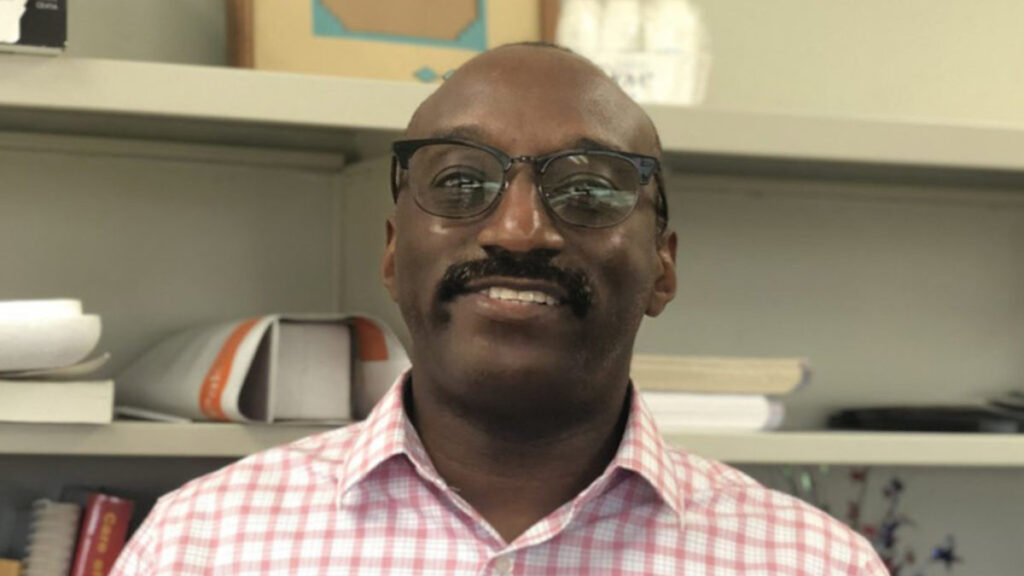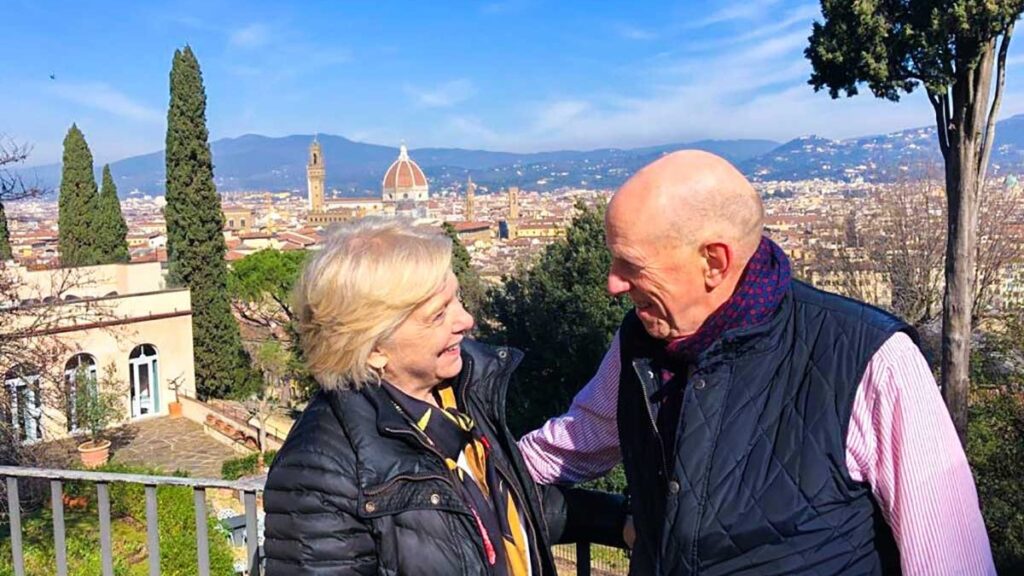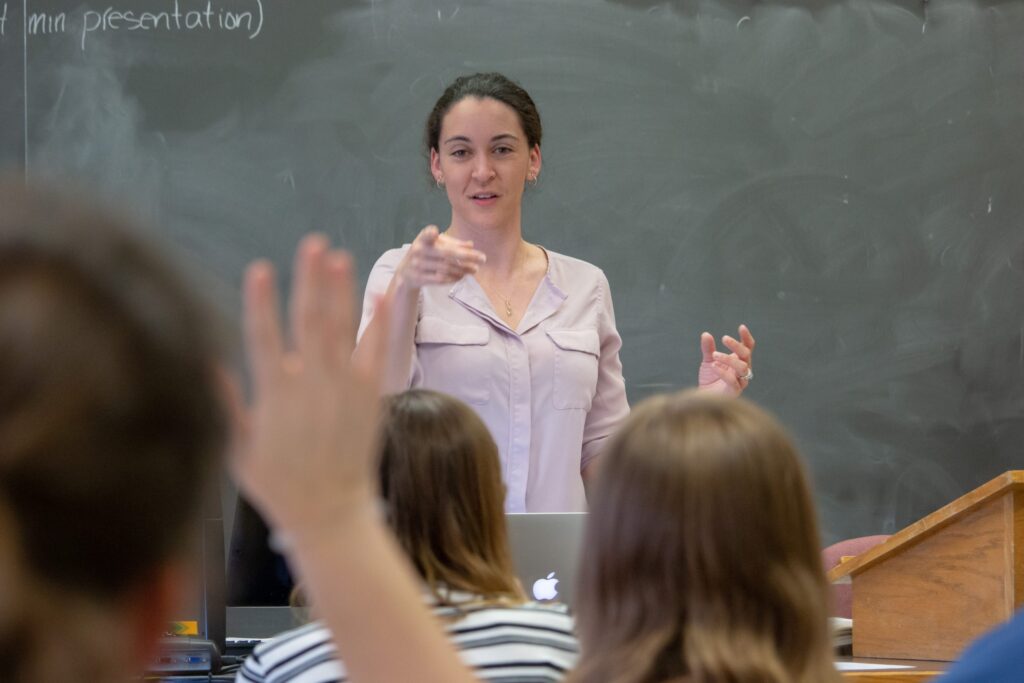Zietlow Fellows foster community
April 10, 2025
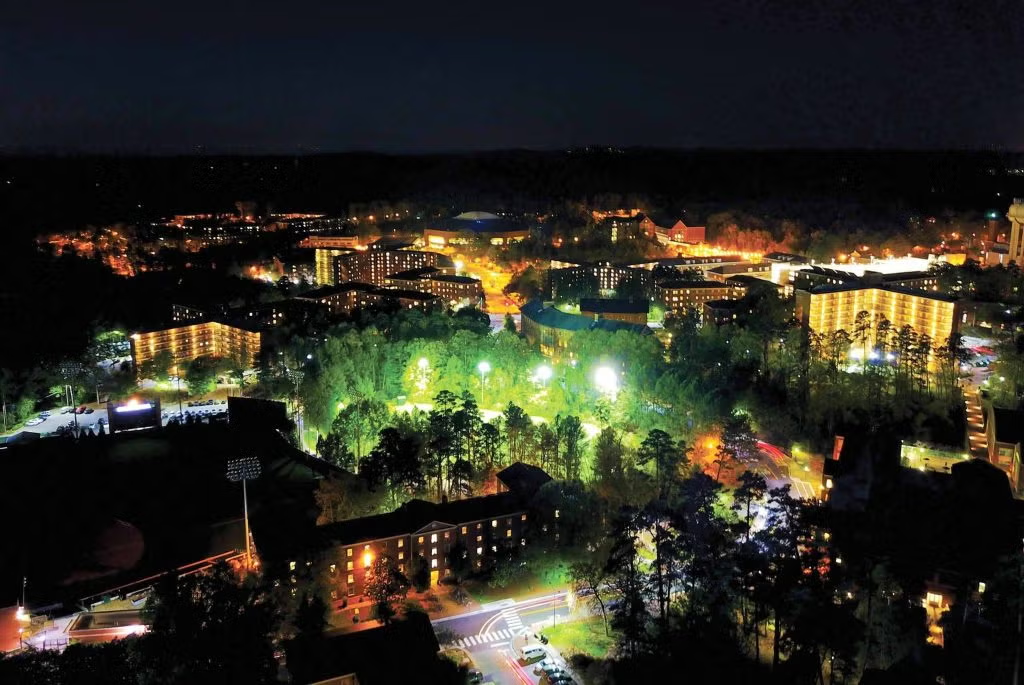
A new civic engagement fellowship empowers students to conduct impactful humanities research that reaches far beyond Carolina’s campus.
At the heart of all research conducted by Carolina’s Zietlow Civic Engagement Fellows, there is a common theme: community.
Part of Carolina Public Humanities’ broader Zietlow Civic Engagement Initiative, the one-year fellowship in the College of Arts and Sciences invites Tar Heels in any major or class year to pursue innovative humanities research that positively impacts their neighbors on and beyond campus.
“By prioritizing the humanistic side of civic engagement, we foster a type of connectedness that acknowledges our humanity as well as our differences in the service of a shared future,” said Kylie Seltzer, Zietlow Postdoctoral Fellow and leader of the fellowship program.
Seltzer, who has directed the initiative and fellowship since 2023, said she was drawn to Carolina Public Humanities because of its mission to “make knowledge accessible to those across the state.”
That mission echoes the broader Zietlow initiative, which was made possible through a generous gift by Miriam ’83 and Tom Zietlow, MBA ’01.
“Miriam and Tom’s gift has enabled Carolina Public Humanities to have the capacity to show up in new spaces related to civic engagement in North Carolina that we would not have had otherwise,” Seltzer said.
And from health care affordability to media literacy, community garden access to educator advocacy, the fellows are doing just that.
Championing public transit
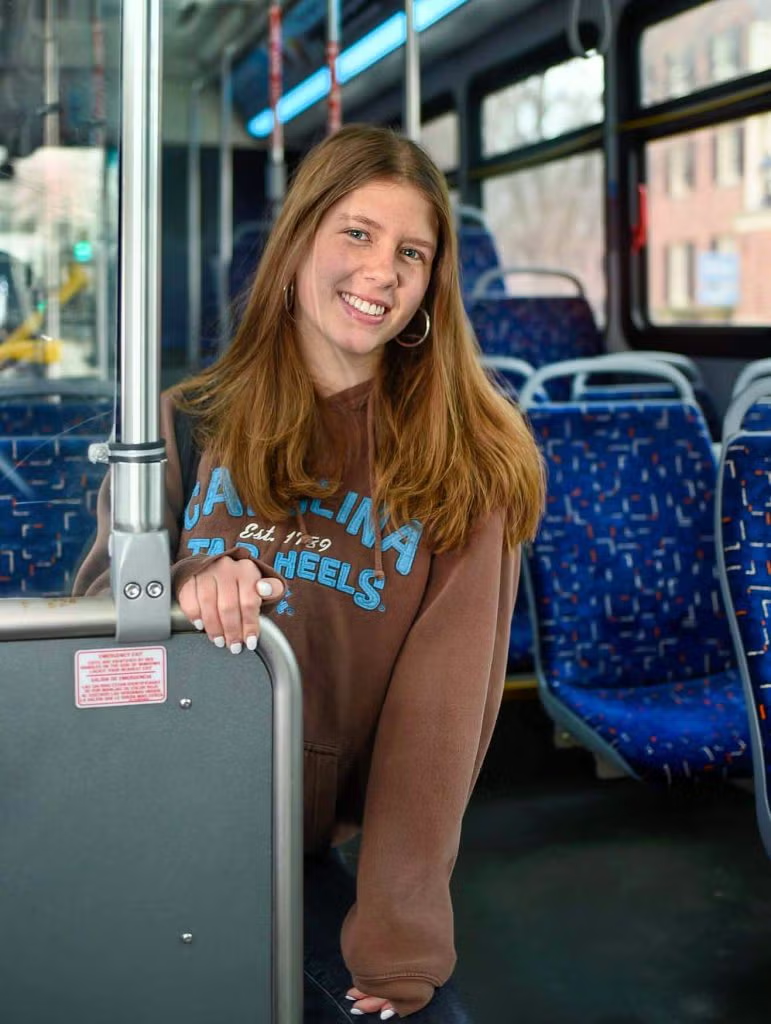
When Carolina sophomore Micah Mangot’s high school bus route was canceled due to the pandemic, she took action.
“We were going back to school, and it still wasn’t running,” said Mangot, who is from San Francisco. “So, I called into a Board of Education meeting. Eventually, it was restored.”
For Mangot, this was a small example of civic engagement in an area she is deeply passionate about: public transportation.
“I don’t have my driver’s license. I don’t have a car,” said the political science and economics double major. “I was always dependent on taking the bus and, in San Francisco, the subway and train. And I genuinely enjoy it. I feel like it builds community.”
Mangot keenly felt the impact of public transportation in the Triangle area when she interned in the governor’s office in downtown Raleigh last year. Twice a week, she used local and express bus routes on GoTriangle to navigate the over-50-mile round trip.
“That is really what got me interested in this project,” she said of her Zietlow research.
Through the fellowship, Mangot is researching the history of public transportation in Chapel Hill, Durham and Raleigh to better understand riders’ options and encourage commuter feedback. Her work has taken her to Wilson Library to comb through old bus fares, vintage postcards and GoTriangle meeting notes from across decades.
She has also connected with leaders at GoTriangle and Chapel Hill Transit as well as experts at Carolina and NC State.
Mangot received support from experts at University Libraries, just one of several organizations on campus that collaborate with the fellows. Other programs that provide support include the Southern Oral History Program, PlayMakers Repertory Company, the Ackland Art Museum and Carolina Performing Arts.
But, often, the most influential collaborators are fellow Zietlow researchers.
“It’s nice to be doing this research with other people,” said Mangot of her cohort of six scholars. “We give each other feedback on our presentations. We share resources. It’s very supportive.”
In addition to peer-to-peer mentorship, Katherine Stein, the Zietlow Graduate Fellow, meets with undergraduate fellows every other week to offer project management advice and guidance. Fellows are also paired with a Carolina faculty member to provide subject expertise.
With the help of her advisers, Mangot is encouraging her neighbors to use and improve their regional public transportation systems through her research. She plans to interview commuters to create short profiles on their reasons for riding and hopes to publish them digitally to foster widespread rider feedback participation.
“Agencies like GoTriangle, local governments and city councils, they genuinely do care about what community members think,” she said.
Empowering patient voices

After graduating from high school, Rob Clay got a close look at health care while working as an ophthalmic technician. However, it wasn’t until his own medical emergency that he began to understand the scope of medical costs.
“I ended up getting super sick,” said Clay. “My appendix ruptured and then the surgery went bad, and I had internal bleeding. After that, I had a massive bill. It woke me up to the realities of the health care system.”
After he recovered, Clay returned to work in pediatric ophthalmology, but he could not shake his experience, especially as he noticed more patients making difficult financial decisions.
Through the C-STEP program, Clay transferred from Durham Technical Community College to Carolina as a junior to study philosophy, driven by a desire to study the art and science of critical thinking to tackle health care affordability.
That same year, he discovered the Zietlow Civic Engagement Fellowship.
“I started by looking at the Affordable Care Act,” said Clay, who graduated in 2024, “but that was not what the project ended on.”
He was paired with faculty adviser and health care policy scholar Jonathan Oberlander, professor of social medicine and health policy and management in the UNC School of Medicine and an adjunct professor of political science in the College.
Oberlander introduced Clay to health care market consolidation and its effects. The direct impacts on patients and the ties to lawmaking drew him in, and working with Oberlander helped guide his research process.
“Being paired with Dr. Oberlander was essential,” Clay said. “He really was a thought partner.”
Clay was inspired to share his research findings in a nontraditional format — a podcast episode.
“I started the podcast by discussing some of the ways that market consolidation affects real customers,” Clay said. Then, he shared research case studies as a practical way to show how consolidation impacts costs.
Clay said he left his research year — and his time at Carolina — with the ability to deeply engage with complex issues, a holistic understanding of health care policies and a reinvigorated passion to make health care more broadly accessible.
He’s taken that passion into his first year of law school at Duke University, where he is continuing a career path of helping others.
Advocating for educators
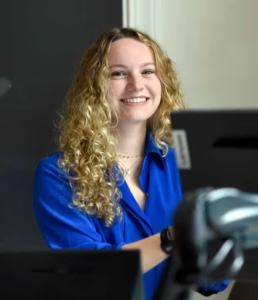
Since childhood, sophomore Allyson Horst has felt called to spend her life helping others. At Carolina, that vision became clear: pursuing a career as an elementary school teacher.
Horst, a Morehead-Cain Scholar from Naples, Florida, discovered the Zietlow Fellowship as a first-year student.
“When I saw that it was focused on humanities research and that it was self-led, I was like, ‘This is the coolest thing ever,’” said Horst, who is majoring in public policy and geography with a minor in education.
Horst said she knew immediately that her Zietlow research would be focused on public school teacher retention and attrition because it is an issue that affects her professionally — and personally.
When her high school experience was disrupted by the pandemic, Horst turned to her teachers for academic and emotional support. More than anyone, her biomedical sciences teacher, Andrea Fuchs, was a rock.
“I would just go to her classroom and talk things through,” Horst said. “Even on her lunch break or her planning period. She was so patient — she never rushed me.”
A couple years later, just before Horst graduated, she learned Fuchs was leaving the teaching profession.
“That was eye-opening,” she said. “I realized other people aren’t going to have this mentor in their life, this amazing teacher, because of factors that caused her to leave the profession.”
That story — and similar experiences from other educators — has fueled Horst’s drive to engage with North Carolina public school teachers in her Zietlow research. Last semester, she explored research on past teacher retention programs to contextualize her work.
Through Wilson Library’s archival resources, she perused past state government education initiatives. And, through informal interviews, she met with Carolina leaders and alumni who had left their roles as public school teachers.
This semester, she is interviewing local educators to create a short documentary on teachers’ experiences, with the goal of highlighting real teacher retention stories.
“Going into this research, especially as someone who wants to be a teacher, it’s been a little scary,” Horst said. “But talking to so many people and gaining these perspectives has been helpful in better shaping my perception of the profession.”
Mangot, one of Horst’s cohort members, agreed that the fellowship’s focus on civic engagement pushed her to expand her research topic knowledge, and that was a plus.
“I really like that you’re working toward the goal of helping those around you,” she said. “And not just the campus community, but the larger community as well.”
By Jess Abel ’19

